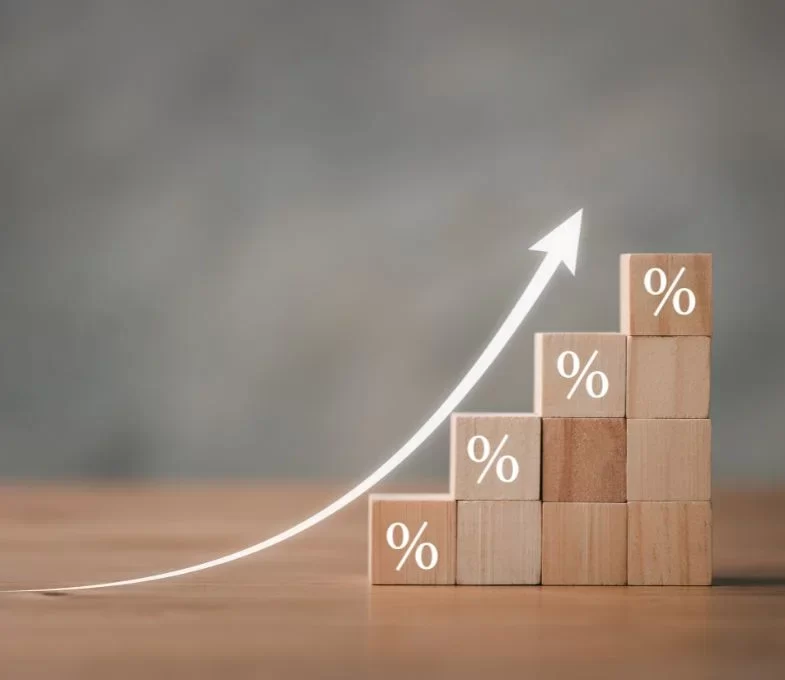
So you’ve got a mortgage. Congratulations! How terrified are you feeling?
Be honest. It’s okay; a mortgage is usually the first ‘big debt’ people take on.
And when you’re looking at owing hundreds of thousands of dollars to a lender, it’s fair to be nervous.
If you’ve recently bought a home and are still wrapping your head around it all, take a look at some of our top tips for managing your new mortgage.
How to find comfort in your new mortgage
Your first mortgage can be intimidating, particularly as there’s such a mass of information about what to do before you apply for a mortgage, but not as much about what to do afterwards.

You’ve signed the paperwork, the titles are in your name, you’ve conducted all the walk-throughs and building reports and the house is now, for all intents and purposes, yours.
So, what next?
First, take a breath. This is a big achievement.
Joining the ranks of Australian homeowners is a dream come true for many, so enjoy the moment. If you’re partial to a happy dance, now is definitely the time to do so (in the privacy of your new home, no less!).

Create a new budget
If this is your first home, it helps to give yourself time to get settled – and not just in terms of your living space.
Owning a home, especially if you’ve been renting, comes with a list of additional costs, which now all fall squarely onto your shoulders. So, one of the best things you can do after you move in is to create a new budget.
Additional costs like new furniture, home and contents insurance, repairs and maintenance, council rates and utilities can all put you in the red quickly if you’re not budgeting appropriately.
Spend the first few months carefully tracking your expenses and bills to get a sense of your outgoings. Identify any areas where you’re spending too much, figure out where your money should be going and, since you’ve likely just spent all your savings on your new home, start up a new savings fund.
We recommend you aim to have at least six months’ worth of living expenses in your savings account before you make any other big purchases.

Explore potential repayment strategies
After settlement, when you’re well and truly comfortable in your new home and have a good few months of solid mortgage repayments under your belt, you might want to begin exploring potential repayment strategies.
By now, you’ve likely gotten comfortable with how your mortgage repayments fit into your household budget, so you might recognise some potential wiggle room in what you’re paying.
Finding the best strategy that works for you can help you pay off your mortgage faster without needing to sacrifice too much or pick up an extra job.
Some potential repayment strategies include:
- Making extra or higher payments
- Opting for fortnightly repayments
- Setting up an offset account

Navigating interest rates (both now and in the future!)
Interest rates are an important factor to understand.
Wrapping your head around them can take time, but over the span of your mortgage, you’ll come to recognise the significant impact interest rates have.
Rates will be less unpredictable if you’ve locked in a fixed-rate loan, as this protects you from experiencing increases in line with the economy.
Variable rates can be unpredictable, rising or falling in line with market value. But they can also present the opportunity to have interest rates that are lower than the current fixed rate. You can also opt for a mix of combined fixed and variable.
So your choice here depends on your appetite for risk as well as your budget and personal circumstances.

Building equity in your new home
Having a mortgage allows you to build equity and improve your financial portfolio.
Equity refers to the portion of your home that you own: however much you’ve paid off, minus the amount still owing.
For example, if your home is worth $800,000 and your remaining mortgage balance is $600,000, then the equity in your home is $200,000.
Equity in an asset allows you to increase your financial security and can be used as a tool to grow your wealth further.
To continue with our above example, if you had $200,000 worth of home equity, you could use it to borrow more money that you could then invest, purchase another property or even start a business.
You can increase equity by making extra payments on your mortgage, paying on time to avoid additional interest charges and even making home improvements to increase the value, which can further build your equity.

Maintain your money mindset
If you’re savvy enough to be a homeowner in your 20s and 30s, we’re sure you’re also savvy enough to have a solid financial plan that covers you for short-term and long-term goals.
Your mortgage should be an integral part of that plan, considering it’s likely one of the biggest purchases you’re going to make throughout your life.
But for many, having a mortgage tends to swamp any other financial goals. So, we like to encourage our clients to take on a growth mindset and keep striving to achieve additional goals.
This means not letting the sheer value of your mortgage debt overwhelm you. You shouldn’t be in a position where you can afford your mortgage repayments, but not much else.
Your mortgage is a pathway to accumulate wealth, provide financial security and set you on the journey to complete homeownership, not a ball and chain that causes you stress and worry (at least, not all the time).

Expert financial support is always available
If you’re ever at risk of financial hardship, whether you’re trying to save for a home or you already have a mortgage, know that there is always support available.
Our highly qualified team at Step Up Financial is helping young people up and down the NSW region step up to their wealth potential with clever financial planning and expert advice.
To discuss the best pathway to financial freedom, contact us today to book an appointment.
